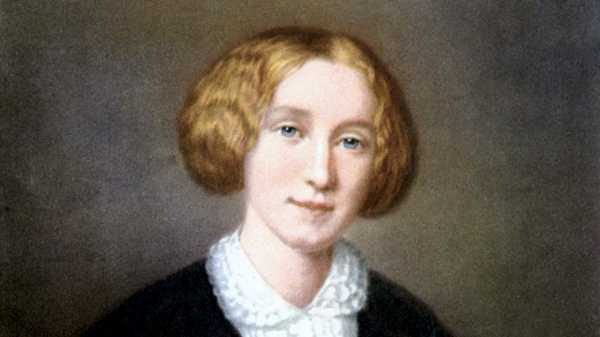
“We must lay upon her grave whatever we have it in our power to bestow of laurel and rose,” Virginia Woolf wrote of George Eliot, in 1919, appraising the author’s work on the centenary of her birth. This week marks two hundred years since Mary Ann Evans was born, on November 22, 1819, in the upper bedroom of a farmhouse on an estate in the English Midlands, where her father was the land manager. Woolf’s essay, which appeared in the Times Literary Supplement, contains the most celebrated observation that anyone has ever made about Eliot’s contribution to English literature: that her masterpiece, “Middlemarch,” which was published in eight parts between 1871 and 1872, is “one of the few English novels written for grown-up people.”
“Middlemarch,” and Eliot’s work in general, remains remarkable for its subtle delineation of character and of inward psychology. Few authors have matched Eliot’s clear-eyed and compassionate capacity for portraying an individual’s growth, error, and disappointment—aspects of the human that do not seem to change much with the passing of the centuries. In a book that I wrote about Eliot, “My Life in Middlemarch,” I described returning to her greatest novel at different stages of life and discovering its changing resonances. I told of reading the novel at seventeen, when the inchoate, youthful passions of Dorothea Brooke, the novel’s heroine, seemed not so different from my own, despite the distance between both our times and our social stations; of revisiting it in my twenties, and discovering a sobering kinship with Tertius Lydgate, the doctor who has ambitions of achieving something great in medicine but is thwarted by a misguided marriage; of returning to it in middle age and recognizing the range of humbling resignations—of devastating sorrows and quiet satisfactions—that come to all of us as the years pass and experience accrues. “Middlemarch” is a book that grows with the reader as the reader grows, which is why, two hundred years after Eliot’s birth, a reader can find it always has something to say to her or to him.
Lately, though, I have found myself thinking less about Eliot’s depiction of individual characters and more about the novel’s subtitle, “A Study of Provincial Life.” When Eliot set out to write “Middlemarch,” what she seemed to have in mind was a panoramic examination of a small town and its inhabitants that would capture not just the stories of individuals but would also say something about the way a community works, and about the state of the nation. “I am delighted to hear of a Novel of English Life having taken such warm possession of you,” her publisher, John Blackwood, remarked, when Eliot conveyed her intentions to him. Revisiting “Middlemarch” in the England of 2019—a year in which Britain was due to leave the European Union but instead has been mired in parliamentary paralysis, which the forthcoming election may or may not resolve—Eliot’s ironic observations about the electoral system have a new piquancy, and her representation of the innate conservatism of English provincial life has a topical relevance.
“Middlemarch” is a historical novel, set in the early eighteen-thirties—approximately four decades before it was written. The signal historical event of that moment was the passage of the first Reform Act, in 1832, which set in motion the reshaping of Parliament, through the reorganization of the country’s electoral districts, and the gradual extension of the franchise beyond a narrow élite. The legislation both changed the country and reflected changes occurring within it. Threaded through the novel are periodic references to the momentous shifts that were happening at the beginning of the eighteen-thirties. Mr. Hackbutt, a wealthy tanner, cites the “non-representation of large towns” as evidence of the necessity of reform; and indeed the first Reform Act would go on to increase the number of representatives sent to Parliament by towns that had grown up since the industrial revolution—“mushroom towns,” as another Middlemarch voter dismissively refers to them. There are references to Lord Grey, who was Prime Minister from 1830 to 1834, the period during which the first Reform Act was introduced and passed into law; and to the alarming occurrences of “machine-breaking,” protests against growing industrialization by workers who feared that their skills would be rendered obsolete by technology. Another technological transformation under way is the coming of the railway, a phenomenon about which, as Eliot shows, members of the public were as alarmed as they are today about driverless cars. “Women, both old and young, regarded traveling by steam as presumptuous and dangerous, and argued against it by saying that nothing should induce them to get into a railway carriage.”
From the vantage point of the early twenty-first century, the decades of the nineteenth century can easily blur into a costume-drama whole, a period characterized by ladies in crinolines and jet jewelry, and gentlemen on horseback riding past peasants in smocks; and it’s easy to enjoy “Middlemarch” without appreciating the carefully drawn social and political context that Eliot establishes. Still, even without understanding all of the historical allusions, it’s possible to grasp Eliot’s implication that the provincial society she is portraying is, for the most part, reflexively conservative.
In one of the novel’s political subplots, Mr. Brooke, Dorothea Brooke’s uncle and guardian, who is a comfortable member of the landed gentry, decides to run for office under the banner of Reform. “There is no part of the country where opinion is narrower than it is here,” Mr. Brooke tells a reproving neighbor, Mrs. Cadwallader, the rector’s wife. Eliot shows, however, that Mr. Brooke’s commitment to reform is, at best, insubstantial. Having read theorists whose ideas underlie the movement, Mr. Brooke is inclined to ideas of liberalism, but, being a comfortable member of the landed gentry, his instincts are less than disruptive. (“Let Brooke reform his rent roll. He’s a cursed old screw, and the buildings all over his estate are going to rack,” one of the burghers of Middlemarch scathingly observes, when Brooke announces his forthcoming platform.) “This Reform will touch everybody by-and-by—a thoroughly popular measure—a sort of A, B, C, you know, that must come first before the rest can follow,” Mr. Brooke argues, to a voter, with “a sense of being a little out at sea, though finding it still enjoyable.” The hallmarks of Mr. Brooke’s character, and of his political campaign, are an inconsistency of mind and an absence of intellectual rigor.
Within the universe of “Middlemarch,” large movements of history form a partially understood backdrop for individual lives; it seems to be Eliot’s implicit contention that individuals are most likely to interpret political change in the light of its specific impact upon themselves, rather than its wider impact upon society. Mr. Mawmsey, the grocer whose vote Mr. Brooke seeks to win with his woolly advocacy of the necessity of change, replies that he can’t afford to think of reform in those terms. “When I give a vote I must know what I am doing; I must look to what will be the effects on my till and ledger, speaking respectfully,” he tells Mr. Brooke. The novel’s most spirited advocate for Reform is not, in fact, candidate Brooke but one of his neglected tenant farmers, Mr. Dagley. Despite being ineligible to vote himself, Dagley anticipates more rights for the common man under the coming changes to the law. “There’s to be a Rinform, and them landlords as never done the right thing by their tenants ‘ull but treated i’ that was as they’ll hev to scuttle off,” he says, with satisfaction.
In “Middlemarch,” the conflicting impulses toward conservatism and change form the background to the novel’s action, and Eliot is most concerned with the ways in which the shifting political landscape allows for expressions of petty self-interest. In contemporary Britain, Brexit is the inevitable foreground. For the time being, it remains England’s principal plot. One of the ways in which this moment in Britain feels so convulsively extraordinary is in the wholesale rejection of small-“C” conservatism—which until recently felt as characteristically English as it did in George Eliot’s time. That the tills and ledgers of Britain will take a hit from the U.K.’s departure from the E.U. is hardly debatable: the independent National Institute of Economic and Social Research recently found that, under the terms of the deal proposed by Prime Minister Boris Johnson, G.D.P. will be three and a half per cent less in a decade than it would be if the U.K. were not to leave the E.U., representing a loss of seventy billion pounds. The eagerness among Conservative Party supporters for “getting Brexit done,” as Johnson puts it, discounts cautious economic self-interest in favor of ideological commitment. A YouGov poll conducted earlier this year found that sixty-one per cent of Conservative Party members would be willing to countenance significant damage to the U.K. economy as the price of Brexit. Conservatism—the reflexive inclination toward continuity and gradual progress rather than toward the disruptive spasm of revolt—may be Brexit’s biggest casualty in the nation’s public life.
Novels are already being written about Brexit; perhaps, forty years from now, a writer will be inspired to take the current crisis and use it as a lens through which to tell a story about the character of England, as Eliot did with Reform. Readers may struggle to identify glancing references to David Cameron, the former Prime Minister, who was so confident that Britain would vote to remain that he failed to prepare for the opposite outcome, and to Theresa May, the hapless Prime Minister who succeeded him and eventually left office with a dismal record of failure. Boris Johnson may be more identifiable, since he seems ready-made for fiction—a walking caricature of a bumbling opportunist. A successful Brexit novel of the future may suggest, as “Middlemarch” does, that campaigning for large social change as a means of satisfying personal ambition can have results that extend far beyond the present, as Cameron, May, and Johnson have all discovered. In “Middlemarch,” Mr. Brooke wants Reform without too much reformation; he does not really want an alteration in the balance of power in the legislature between the landed gentry and the new industrial centers. It falls to Will Ladislaw, a young political journalist, to tell him that such a position is untenable. Ladislaw offers a metaphor that might well serve the present moment, in which English life is being reshaped to still indeterminate ends. Wanting only partial change, when one has already set change in motion, Ladislaw warns, “is like asking for a bit of an avalanche which has already started to thunder.”
Sourse: newyorker.com



